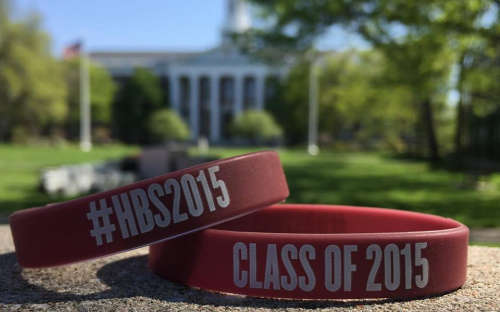63 MBAs account for 38 (or 24%) of the world’s unicorn start-ups, says new data from NextView Ventures. There are 157 unicorns which have not floated or been acquired, according to the Crunchbase Unicorn Leaderboard.
Entrepreneurs from Harvard Business School founded the most unicorns, 13, which are collectively valued at nearly $26 billion and have banked $5 billion in venture capital. These include GrabTaxi, the Singapore cab-hailing start-up that has raised $680 million, which has an unconfirmed valuation above a billion dollars.
Oscar, health insurance company utilizing big data, has raised around $330 million since its founders graduated from Harvard.
Stanford’s Graduate School of Business is second with seven unicorns, despite its closeness to San Francisco’s start-up and venture capital hotspot, Silicon Valley. Stanford’s nine entrepreneurs have raised $3 billion in investment for their unicorns, valuating them at $10.5 billion.
“There’s an obvious advantage to being at Stanford. In order to get a meeting with a VC, you just drive a few minutes down the road,” says Tom Sabel, associate director of carers at Stanford GSB.
The most noteworthy are Medallia, a Palo Alto-based company that makes customer-feedback software, which raised $255 million, including from Silicon Valley’s Sequoia Capital, giving it a valuation of $1.2 billion. And Proteus Digital Health, which has backing of $283 million and a valuation of $1.1 billion.
Ten Wharton School MBAs have produced five unicorns with combined valuations of $11 billion. They raised $1.8 billion in venture investment, including marketing start-up Red Ventures ($250 million) and Warby Parker ($115 million), which designs and sells vintage sunglasses.
The data highlight the rebalancing of elite MBA students’ career aspirations, away from corporates like JPMorgan Chase or McKinsey & Company, and to entrepreneurial ventures hoping to become the next Google or Facebook.
Todd Carson, senior associate director of Wharton MBA Career Management, says: “The growth in venture investment over the last six years has dramatically increased awareness around entrepreneurship/start-ups and technology as a career path for MBAs.”
Schools in the US, where the venture capital industry is more mature, dominate the list of unicorns. “Start-ups and innovation are areas of strong interest,” says Sue Kline at Cambridge’s MIT Sloan School of Management.
But there are five non-US MBA programs boasting unicorns — at INSEAD, IIM Calcutta, Vienna University, Tel Aviv University, and University of Otago. “There is a thirst to be entrepreneurial,” says Sue Thorn, director of careers for the UK’s Warwick Business School.
INSEAD, which has campuses in France, Singapore and Abu Dhabi, has produced four unicorns. These include BlaBlaCar, the French ride-sharing platform that is valued at €1.4 billion, and data analytics company MongoDB, which is valued at $1.6 billion.
Software, consumer internet and e-commerce companies make up a significant majority of the unicorns, such as Honest Co, an e-commerce start-up from UCLA Anderson School of Management that was co-founded by actress Jessica Alba.
Despite the growth in MBAs flocking to and founding tech ventures, there has historically been resistance among IT entrepreneurs to accept them. Sheryl Sandberg, Facebook’s COO, made headlines when she slammed the value of an MBA in December.
“The currency is your ability to code,” says Ted Zoller, director for the Center for Entrepreneurial Studies at Kenan-Flagler Business School.
Overall, the MBA entrepreneurs have raised $15 billion in venture capital for their unicorn companies, as the VC industry has shown increased willingness to throw money are pre-cash-generative start-ups but which are growing — fast.
“Because VCs take a lot of risk in the portfolio, there often needs to be outsized exits, including $1 billion and more,” says Jason Heltzer, assistant professor of entrepreneurship at Chicago Booth and partner at Origin Ventures.
However, there are concerns that the valuations of private start-ups are too high and will not stand up to the scrutiny of public markets — highlighted by Square’s IPO.
“Some would suggest valuations have become lofty,” says Ben Thomason, sector director for finance at Duke Fuqua.
Investors have in recent months marked down their stakes in unicorns such as Snapchat and Dropbox.
“Although the number of unicorns has proliferated, some will undoubtedly become unicorpses,” says Vincent Ponzo, director of the Eugene Lang Entrepreneurship Center at Columbia Business School.
RECAPTHA :
0d
57
a1
98











